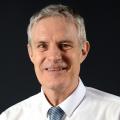
THE A&E department at Taunton's Musgrove Park Hospital has scooped an award for its cutting edge studies, some of which have benefited patients worldwide.
The National Institute for Health Research named Musgrove's emergency department as the best research team in the South West.
It is in recognition of a number of high profile clinical trials and research undertaken there over the last six years.
Dr James Gagg, the hospital’s clinical lead for emergency medicine and research in A&E, said the accolade is testament to the outstanding dedication of staff in supporting research opportunities.
He added: "We're very proud to be involved in so many clinical trials that will have such huge benefit to patients in Somerset and across the world.
"The rapid growth of research activity in our A&E would not have been possible without our excellent staff.
"It also shows that important research is still possible despite ever increasing pressure on urgent and emergency care systems across the country."
Among the studies are:
*REVERT, which saw two Musgrove A&E consultants work with the research team at the Royal Devon and Exeter Hospital, investigating whether a modification to a Valsalva manoeuvre - which tests the body's ability to compensate for changes in the amount of blood that returns to the heart - would benefit patients suffering from supraventricular tachycardia (SVT), a condition where the heart suddenly beats much faster than normal. The results of the study, published in The Lancet, led to a significant change in practice for managing SVT worldwide and has meant fewer patients have needed drugs to manage the condition.
*The HALT-IT, CRASH3 and NOPAC trials, which will help see if the tranexamic acid drug helps in patients bleeding from their bowel, after head injury or during a nose bleed respectively.
*The Fluids in Shock (FiSh) trial, which aims to investigate whether giving less fluid is more beneficial to children with a severe infection than the amounts of fluid currently recommended in the UK.
*The commercial REVERSE-AD study, which looked at the effectiveness of the new drug idarucizumab in reversing blood thinning in patients with uncontrolled bleeding or who are about to undergo an urgent procedure and are taking the blood thinner dabigatran. Musgrove was able to rapidly implement the use of the life-saving drug as standard practice.
*Working with Swansea University in developing a tool that will help clinicians better assess blunt chest wall trauma cases, such as when a person hits a steering wheel or other non-sharp object.
*A partnership the University of Ghent, in Belgium, investigating A&E and ambulance service healthcare professionals’ perception of appropriateness of CPR following a cardiac arrest.



Comments: Our rules
We want our comments to be a lively and valuable part of our community - a place where readers can debate and engage with the most important local issues. The ability to comment on our stories is a privilege, not a right, however, and that privilege may be withdrawn if it is abused or misused.
Please report any comments that break our rules.
Read the rules here